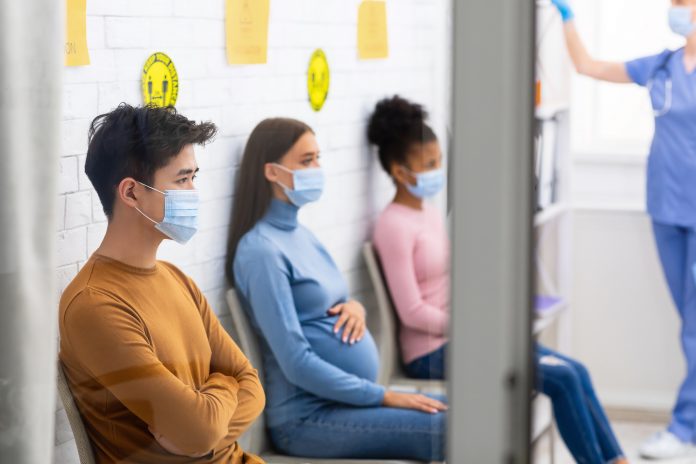Despite healthcare workers experiencing the negative effects of COVID-19, many did not intend on being vaccinated – new research highlights how their outlooks have changed
A study by Northwestern Medicine emphasises how fast many healthcare workers from a large urban health care system in Chicago changed their minds on receiving the COVID vaccine, resulting in a vaccination rate of 95% by spring 2021.
The study found that only three-fourths of the 4,180 health care workers in the study had intended on being vaccinated in winter 2021, but by spring 2021, 95% had been vaccinated. Additionally, of the health care workers who were unsure about getting vaccinated in winter 2021, around 90% had been vaccinated by spring 2021.
They also noted that of the health care workers who indicated no intention to get vaccinated in winter 2021, nearly 60% had changed their minds and gotten vaccinated by spring 2021. This is a great improvement in vaccination rates, especially for the protection of healthcare workers when working in possibly dangerous environments – around the hospital during COVID-19.
Most of the reasons people had reported for not being vaccinated against the virus revolved around a general mistrust of the government and medical system, making them unsure as to ‘what is in the vaccine’.
Vaccines provide the most efficient protection against the virus
Numerous factors contributed to health care workers changing their minds, such as clear messaging about the safety of the vaccines, convenient access to vaccinations at the hospital, awareness that workplace mandates were coming in the future, such as seen in the Emergency Use Authorization (EUA) by the U.S. Food and Drug Administration.
Published in the journal Infection Control & Hospital Epidemiology, this was the first survey for this type of study, which administered 4,180 Northwestern Medicine health care workers from December 2020 through February 2021.
The second survey, taking place in June 2021, asked about health care workers’ COVID-19 exposures and experiences and COVID-19 vaccination status. Additionally, the participants also underwent blood testing to measure their antibodies at enrolment in spring 2020 and six months after enrolment.
Lead study author Charlesnika Evans, at Northwestern University Feinberg School of Medicine, said: “This study found health care workers’ attitudes about COVID-19 vaccination could change in a very short period of time. It shows there is opportunity to change people’s decisions about not getting vaccinated.
“We saw a significant change in the number of people who said they would get the vaccine after the EUA was issued. People may have felt, ‘OK, this might be safe for me to take.”
Incorporating unsure people into vaccine research can help them better understand
Gender, race and occupation also assisted people’s chosen vaccination acceptance. However, demographics played a role too, as nurses (versus physicians), non-Hispanic Black (versus Asian) health care workers and women versus men were less likely to report an intention to get vaccinated. The authors did note that a “good portion” of Black participants in the study eventually got vaccinated.
Individuals who showed negative antibody results were more likely to get vaccinated, as well as people who were older than 65 years of age.
Women had a lower intention to get vaccinated than men, especially those who were in their reproductive years and those who were planning on having kids.
Surprisingly, despite the reports that nurses have the highest rates of COVID-19 within health care workers, nurses had lower intentions to get the vaccine.
Evans continued: “The fact that they didn’t actively recruit pregnant women into the vaccine studies makes sense early on, but to prove and be sure it’s safe and effective, inclusion of these groups in trials is important. However, so far CDC data show that pregnant women have not experienced more adverse events than the general population.”
“Mistrust in the health care system is a concern. That’s a larger issue to be addressed within society in general that goes way beyond this study. We must continue thinking about how to improve our messaging and addressing the issues around mistrust toward the health care system. This is imperative for COVID-19 and other conditions.”
The researchers note that the best way to tackle vaccine mistrust is by including people who have not traditionally been in research studies, making more of an effort to include them in vaccine or research studies in general, so they become fully aware of the whole picture of vaccines and what is in them.












You realize it was vax or be fired???
We don’t want vax